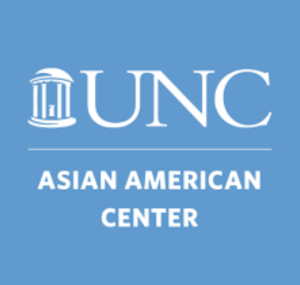Resources
General Oral History Resources
-
What is oral history? How do you carry out oral history?
-
A Practical Guide to Oral History, by the SOHP (coming soon!)
-
Life History Interviews: Sample Questions, by the SOHP
-
Oral History Guide, by the Marian Cheek Jackson Center for Saving and Making History
-
Self Evident ToolKit
-
Oral History Association (OHA)
-
Oral History in the Digital Age: Best Practices
-
Asian American Oral History Projects and Resources
Claiming Carolina
The American South, in many ways, is a microcosm of the complex racial, political and social histories of the United States and the ways in which we, as a country, draw boundaries and construct identities and definitions of belonging.
This project takes a closer look at the intersection of cultural and regional identities among South Asians in North Carolina, particularly in how specific terminology and identity formation varies across generations.
For the interviewees who participated in this project, the spaces in which they slip in and out of their identities are varied and layered. Just as the Southern experience isn’t a monolith, neither is the Asian American experience nor, as in the case of this project, the South Asian American experience in the South.
South Asian American Digital Archive (SAADA)
The South Asian American Digital Archive creates a more inclusive society by giving voice to South Asian Americans through documenting, preserving, and sharing stories that represent their unique and diverse experiences.
SAADA envisions American and world histories that fully acknowledge the importance of immigrants and ethnic communities in the past, strengthen such communities in the present, and inspire discussion about their role in the future.
SAADA has a wide breadth of resources from archival resources, textbook material, fellowships, walking tours and many more!
UNC Resources
UNC Asian American Center (AAC)
Founded in 2020, the Asian American Center’s mission is to cultivate a critical understanding of Asian American peoples, cultures, and histories. Through education, organizing, and advocacy, the AAC will engage and empower Asian American students, faculty, and staff and the greater Carolina community.
The AAC enhances the University’s commitment to excellence by expanding access to interdisciplinary learning and preparing the next generation of leaders for an increasingly multicultural society. You can find information here about the Center’s programming, partners, and history, as well as ways to support us and get involved.
Carolina Asia Center
Founded in 2002, the Carolina Asia Center (CAC) is the University of North Carolina’s flagship organization for Asia-related activities and plays an important role in promoting the university’s global strategy.
The mission of the Center is to positively transform our understanding of and relationship with Asia, and to equip students and others with the knowledge of Asia to assume leadership roles. The Center works with the College of Arts and Sciences, professional schools, and various departments, centers and student organizations at the University of North Carolina at Chapel Hill; and collaborates with other regional and international institutions to develop and implement educational programs on Asia. The Center seeks to increase resources for the study and research of Asia and opportunities to engage with Asia through seminars, language study, outreach, cultural competency, study abroad, and visiting scholars programs.
 The Southern Oral History Program
The Southern Oral History Program
People make sense of their lives through story. The South is especially rich storytellers, and it has a vibrant past of struggle and renewal. For more than forty years, the SOHP has preserved the voices of the southern past. Our aim has been to learn the South’s history from the people who have lived it, who have staked their lives and values in it, and who are eager to supplement the historical record with the vitality of their own accounts. We work to capture priceless memories before they are lost, and we present these stories to the public in creative forms. Since 1973, the SOHP has conducted 6,000 interviews with men and women–from mill workers to civil rights leaders to future presidents of the United States. Made available to the public through UNC’s renowned Southern Historical Collection and through our online database, these interviews capture the vivid personalities, poignant personal stories, and behind-the-scenes decision-making that bring history to life.
K–12 Resources
K–12 Resources
Oral Histories of Migration: Asian Americans in North Carolina



